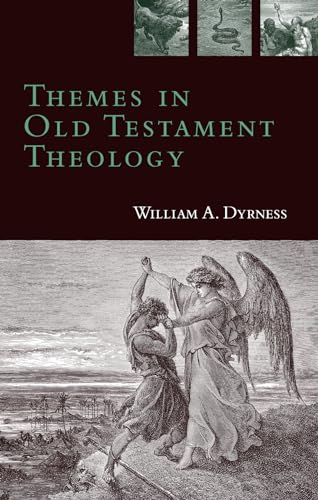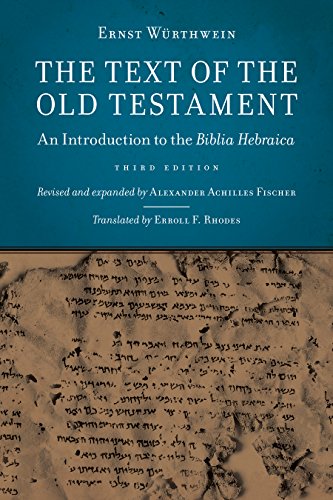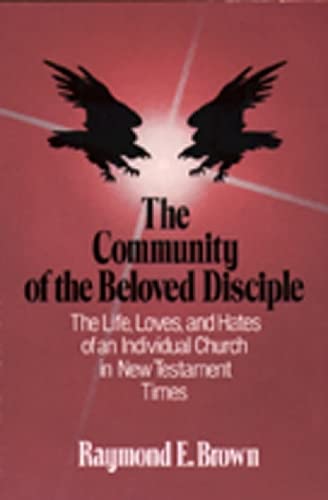Perspectives on Evangelical Theology
Written by Kenneth S. Kantzer and Stanley N. Gundry Reviewed By John S. FeinbergThis book contains some of the papers delivered at the 30th Annual Meetings of the Theological Society in Deerfield, Illinois. The editors indicate that decisions concerning which papers to include were not always based on the quality of the papers. The intent was to represent the wide diversity of perspectives within evangelical theology and to reflect the emphasis of the meetings on systematic and biblical theology.
Of the 20 papers presented, 13 are in the area of systematic theology, covering such areas as Christology, soteriology, theology proper and the social implications of the gospel. Three papers on biblical theology are included, two on philosophical theological issues, and two papers on the ordination of women. None of the papers included directly handles matters of bibliology. I find that encouraging, not because bibliology is unimportant, but because it indicates that evangelical theologians are addressing themselves to issues beyond the scope of topics such as revelation, inspiration, and inerrancy.
Though many of the articles presented are very fine, from the standpoints of depth of perception, handling of the issues, and creativity in addressing questions, the best papers in the volume seem to be those by Bruce Demarest (process trinitarianism), Millard Erickson (explanation of and interaction with various methodologies of Christology), John J. Davis (Kant), and Gordon Lewis (theological and philosophical categories). Earl Radmacher also presented a paper on dispensationalism and its eschatology which is significant in its attempt to refine and clarify dispensationalism. Dispensationalists are making even further refinements beyond those of Radmacher. Unfortunately, not many of them are getting their ideas in print. Hence, the article in this volume becomes all the more significant. One would have hoped that Hoekema’s paper on eschatology from an amillennial perspective would have been included for comparison, but as the editors note, there were some hard decisions to make.
While I greatly appreciated all the articles, I found some to be somewhat problematic. For example, Bockmuehl claims (as others often do) that we need to regain a lost Biblical dynamism by rejecting the sentence structure of ‘Is’-sentences characteristic of Greek metaphysics and its propositions of being in favour of the Hebrew, action oriented forms of thought. This attempt to recover Biblical dynamism needs to extend beyond theology proper and Christology to pneumatology, ecclesiology and ethics. When applied to the doctrine of God it would mean that ‘we suspend the traditional language of God’s nature and attributes as possibilities, and instead speak of God as revealed in his actual deeds’ (p. 11). Bockmuehl even argues that such verses as 1 John 4:8 are shorthand for action sentences such as John 3:16. I find several difficulties with this whole approach even beyond the dubious hermeneutics suggested by the handling of 1 John 4:8 (Lewis’ article also is helpful in handling these issues). First, what we are being told is that the Hebraic form rather than the Greek is the normative for interpreting Scripture, but I have to ask why. It cannot be that the Hebrew form has no philosophy whereas the Greek does. Both presuppose a philosophy and that philosophy can mislead one in his understanding of Scripture, but we need not incorporate all of the wrong ideas from Greek thought any more than from Hebraic philosophy. It seems that the basic reason for making the Hebraic normative is that one holds the presupposition that the emphasis on action or function is the only emphasis presented in Scripture, but that obviously begs the question. This leads to a second problem, namely, the failure to distinguish properly between functional and ontological descriptions of God, man, etc. or the mistake of emphasizing one at the expense of the other. It simply is not true that Scripture makes no statements of ontological import whatsoever nor that one cannot derive an ontology from Scripture. For example, Jesus says ‘God is a Spirit’ (Jn. 4:24) and that ‘a spirit does not have flesh and bones as ye see me have’ (Lk. 24:39). It would seem rather hard to uphold a claim that those are statements without any ontological import. Granted, producing an ontology from Scripture is difficult, but that does not mean it is impossible or that we should either ignore ontology or claim that Scripture only speaks about God and man relationally or functionally. Scripture (not just Greek philosophy) contains many ontological statements, and no amount of exegetical fancy footwork will make them go away! At any rate, why does one have to claim that Scripture speaks exclusively of being or doing? The beauty of Scripture is that it not only tells us what God does and what we must do, but it first tells us what He is and what we are. Without such an understanding of what God and man are, it becomes somewhat difficult to understand why God and man do what they do.
If Bockmuehl’s article is symptomatic of these difficulties, one can see the problems even more explicitly in Pinnock’s article (‘The Need for a Scriptural, and Therefore a Neo-Classical Theism’). Pinnock claims that the problems created by a ‘static’ approach to theology are seen very vividly in regard to the matters of divine immutability, timelessness, and impassibility. Pinnock’s conclusions come out quite clearly in regard to the matter of immutability. He argues, ‘In regard to the immutability of God, although the Scriptures plainly teach God’s constancy and reliability in the moral and religious spheres, nowhere do they teach or imply immutability in the strong metaphysical sense which was adopted in the classical tradition. On the contrary there are innumerable texts in which God’s responses and actions are described so as to convey real and dynamic change in him’ (p. 38). Certainly, these statements evidence failure to make the distinction between immutability and immobility, fixity of being (ontology) versus changes in relations (functional, relational category). If God is not unchangeable in His nature and attributes, then we are indeed in trouble. A God who is not metaphysically stable might someday cease to be just, truthful, omniscient, etc., but such a capacity for God to change in those areas is clearly denied by Scripture. However, God can and must change His relations. God’s relation to a repentant sinner differs from His relation to unrepentant sinners, but the changed relation obviously does not indicate any change in the ontological constituents of God’s being. Both the ontological and relational statements about God can be made without contradicting Biblical truth.
Rather than overemphasizing this point, I would just encourage the reader to read Demarest’s article (‘Process Trinitarianism’) in conjunction with Bockmuehl’s and Pinnock’s. Not only does Demarest give an excellent explanation of process theology, but in his critique of the movement (pp. 28–36), he offers objections to process theology which also can be used as cogent refutations of and correctives to the positions of Pinnock and Bockmuehl.
Sider and Brown have both written on the topic of liberation. Brown writes on ‘True and False Liberation in the Light of Scripture’, but very little of the article focuses on Scripture per se. I greatly appreciate his plea for evangelicals to watch the language they adopt in speaking of this topic, but I think too much space was spent making that point, important as it is. At the risk of appearing to have no social concern whatsoever, I venture to say that while there will be a basic agreement with Sider’s claim that the gospel has social implications, there will be much discussion and disagreement over the specific case presented for his position. For example, Sider (‘An Evangelical Theology of Liberation’) argues that Scripture teaches God is on the side of the poor in that (1) at certain points in history, He acted to liberate the poor and oppressed, (2) He acts in history to exalt poor and oppressed and cast down the rich and oppresive, and (3) God’s people, if they are truly God’s people, are also on the side of the poor and oppressed. The basic problem in all of this seems to be one of overstatement. In the process of arguing for the points, he cites and uses Biblical incidents and statements as if the only reason God is on the side of the poor in each case is just because they are poor. For example, Sider speaks of God’s warning to the people in the time of Amos about impending doom which would come because of oppression of the poor. Sider claims that God did mete out that judgment, ‘because of their mistreatment of the poor’ (p. 122). The point is not that Sider never mentions the spiritual depravity of the people (see p. 121 in re: the Exodus), but only that the major reason given for such intervention on God’s part (to the exclusion of mentioning any other reason in some cases) is the oppression of the poor. Obviously, Sider has a valid point. It just seems that his way of making it overstates the case and misrepresents the Biblical data in some instances.
For those who are interested in eschatology, let me suggest that you will enjoy interacting with O. Palmer Robertson’s handling of Romans 11 and Earl Radmacher’s treatment of dispensationalism. Robertson argues that Romans 11 teaches nothing about a distinctive future for ethnic Israel. Though I disagree with his position, I find that this handling of 11:25–27 is fascinating. Much of what he says could be agreed to by his opponents, and yet he still winds up with a view that the passage says nothing about a distinct future for Israel. Radmacher argues that the key to being a dispensationalist is consistent application of literal hermeneutics, not all of the theological positions (e.g., kingdom of God vs. kingdom of heaven, premillennialism, speaking of dispensations) often associated with dispensationalism at its core. I agree that the key to dispensationalism is hermeneutics, but I don’t think that Radmacher’s particular explanation of how hermeneutics is the key is going to satisfy many non-dispensationalists. Non-dispensationalists accuse dispensationalists of being inconsistent in their literalism, since they admit and interpret figurative language in Scripture. Moreover, many non-dispensationalists would argue that they, too, hold to consistent application of literal hermeneutics. As a dispensationalist, I believe that these objections have to be taken seriously, and I do believe there are answers which uphold dispensationalism. However, Radmacher does not treat these items, and in that respect I don’t think his treatment goes far enough. Nonetheless, he does centre the debate around hermeneutics, and his discussion presents a welcome and needed clarification of the issues separating dispensationalists and non-dispensationalists. In that respect, it is too significant an article to be ignored by anyone interested in the debate.
In light of the current debate on the role of women in the church, the articles on the ordination of women are welcome additions. Margaret Howe and Robert Saucy present opposing viewpoints on the issue. I don’t think either breaks much new ground, and one does sense that there must be much more to the issue than suggested by these two papers. Nonetheless, you will be encouraged to see that evangelicals are addressing topics such as these.
On the whole, you will find this book to be a thought-provoking, informative, enjoyable work. The editors have chosen papers which indeed give varying perspectives on key issues. The book does not present a hodge-podge of unrelated topics as often such collections can. Because of its breadth of topics, variety of theological perspectives, and significance as a statement of where contemporary evangelical theology is today, I think the book is important reading for those inside or outside the evangelical community.
John S. Feinberg
Western Conservative Baptist Seminary, Portland, Oregon







